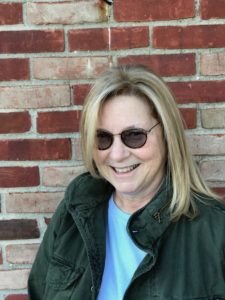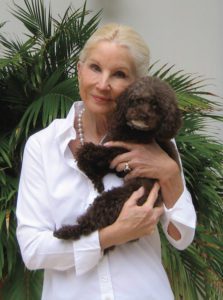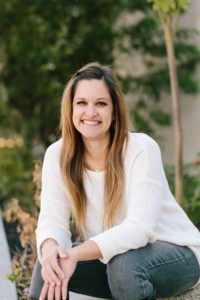Today, Feathered Quill reviewer Holly Connors is talking with Brit Lunden, the author of Bulwark.
FQ: Bulwark starts out right in the middle of the action, without boring the reader with pages of introductions, scene setting, etc. It’s all right there on that first page. Was this intentional?
LUNDEN: Yes. I start all my fiction right in the center of the action and let the reader learn by showing, not telling. It's how I like to read other author's books, and it's the way I always modeled mine, from children's books to adult fiction.
FQ: The setting of Bulwark, Georgia, is very much a character in the story. Is the town based on a town from your past? Or one that is completely made up?
LUNDEN: I drove through Georgia when I was fifteen years old on a trip down to Florida with my family. The quiet, isolated feel stayed with me. We stopped for a rest break in a rural area. I recall a peach farm. I remember getting out of the car and looking at the night sky, and it took my breath away. I had never seen so many stars. I felt like I was in the middle of space. That sense of wonder never left me, and when I created the characters, I plopped them down in an imaginary town based on that spot when I got out to stretch my legs over forty-nine years ago. I wanted to recapture that feeling that I was completely cut off and anything could happen. I want to add, that I was not scared. I thought the place felt magical.
I started Bulwark with a bunch of authors working on an anthology. They wanted to do something paranormal for a Halloween release. I jumped in and built the town and created Sherrif Clay Finnes and his challenges. Another author supplied me with the delightful cousins Trout and Bobby Ray. Nobody finished their story except me, so I asked if they minded if I published. They didn't. Bulwark became a real town for me.
Cut to almost two years later, I was approached by several authors who want to use Bulwark and the characters for another anthology. So, now eight new short stories will be published (including one of mine) on March 19th, based on the town.
FQ: Sheriff Clay Finnes was an interesting protagonist. While the story was short, which didn’t give you much time to develop your characters, he was a complicated individual which added to the intensity of the story. Did he come to life as you wrote, or was he well-developed in your mind before you began the story?

LUNDEN: None of my characters are well-developed in my mind. They come to life and begin to tell me how they want to react or what is right for them. As you said, I start stories by jumping into the action, and the characters play the plot out. I ask them how they would handle things and as they reveal bits of themselves. They do become real to me, and I try to be respectful and not impose my own opinions on them. How boring would that be, if everyone thought alike?
FQ: When Clay goes to find the gingerbread house, the drive down Linden Lane came to life in a very creepy way. Was this part of the story fun to write? Difficult?
LUNDEN: I have fun in every part of the stories I write. I never see it as creepy, and only when I reread, I wonder where the heck it came from. I can't watch scary movies or read horror books - I'm too afraid, so I have no idea where this stuff comes from. When I read reviews that something I wrote was frightening, I'm usually surprised - because I'm easily frightened. I'm more intimated writing a sex scene.
FQ: There are numerous fairy tale references in Bulwark. Do you have a special affinity for this genre?
LUNDEN: I was brought up on fairy tales. My grandmother read me a book that was my mom's when she was a kid. Cinderella was my first movie, and I was enchanted with her ever since. I have so much Cinderella paraphernalia in my home, it looks like Disney threw up in here. I think I must have been my mom's princess. I have sons, so the whole princess thing kind of got pushed behind Hulk Hogan and Transformers.
Now I have two grandsons and two granddaughters.
We have different perspectives on fairy tales today. We tell our daughters that they shouldn't rely upon a man to save them and we say to our boys never kiss anyone while they are sleeping without permission.
I read Jane Yolen's How to Fracture a Fairy Tale on a recent plane ride. It was a delightful modern flip on fairy tales, and I loved it. I also remember loving Maleficent, the movie and the spin on true love.
I think fairy tales gave people hope in the old days. I think they also served as morality lessons. I think people today are more sophisticated and don't like stories shoved down their throats. They also don't want to be manipulated or told how they should feel.
FQ: Bulwark – an interesting title for the story, for the town, and also that Clay was Jenna’s “...bulwark and could stand her onslaught.” Would you discuss how you decided on the name “Bulwark” for your book and it’s multiple meanings?
LUNDEN: I was having trouble with the title, and it popped into my head. I knew Clay was Jenna's bulwark. He would stand in front of a tsunami for her. I had such a mental picture of this guy. He was incredibly brave and self-sacrificing, as well as deeply in love with his wife. I realized as I was writing the inhabitants were all sort of depending on Clay, and I felt their isolation - that his bravery and intuition was what was holding the demons at bay. It seemed a perfect name for the town.
FQ: It seems that Clay Finnes has many more stories to tell. Will we be seeing him again in a future work?
LUNDEN: YES! I am so excited about the eight new short stores that are being worked on right now. I continued JB Stratton's story. He is the retired football player in chapter 2 who succors the car accident victims. If you think Clay was an interesting character, wait until you meet JB.
Dr. Kent and Terence are being included n a short story by DJ Cooper, Erica Graham is writing about Clay and Jenna's neighbor, Dell Henderson is working on something related to the civil war, and RL Jackson hasn't told me where she is going with it, but I can't wait to read it. I bet there will be some vampires to be found. Also, included are Kayleigh MacLeod, Katey Kelley, and newbie Brittney Leigh.
FQ: You’ve authored numerous stories for children. Bulwark is your first work of adult fiction. What made you want to tackle this very different genre?
LUNDEN: I read and review mostly adult fiction and nonfiction. When I started writing, I thought it would be the great American novel. I didn't expect to find my niche with children's books. However, I was writing to a very specific audience - my grandchildren. Captain No Beard was based on games we play as a family and situations that occurred with several members. The cultural series was born from my grandson's interest in diversity. Can a Princess be a Firefighter? was a love letter to my granddaughters and Rocket-Bye was the same for my grandsons. As they grew, I started reading early reader chapter books, and that morphed into the Oh Susannah series.
Many of my author friends asked me to write romance or adult themed books. I decided to take a chance with Bulwark, and I enjoyed the experience very much. I am honored that these authors liked the story enough to help the town evolve and continue to live.
FQ: Coming from your children’s genre background, how different is it to write an adult fiction story? Do you have the entire plot worked out before you begin writing or does the story come together as you write?
LUNDEN: All stories, no matter what the genre come together for me as the plot thickens. I can think I have an idea of where it is going to go, but very often, my characters steer the story in another direction. I know I started The Knowing, Bulwark's sequel in the direction of horror and I think it ended up as a tender paranormal love story. I'm waiting to hear from my beta readers if they felt the same way.
FQ: As a very prolific writer, I’m sure you have more books in the works. Would you tell our readers a little about what’s next for you?
LUNDEN: I just published Mindfulness for Kids with Calista Press. It was my first non-indie assignment, and I had a great time. I collaborated with a therapist and enjoyed the experience. It was published under my Carole P. Roman brand. I am hoping they will ask me to do another. I am finishing up a book called Marketing Indieworld with authors Julie A. Gerber and Dr. Angela Hausman that should be published later this spring.
Regarding Brit Lunden, the Bulwark universe will expand. I think I have more stories of the residents. If the anthology is successful, I believe we can get more authors involved. I loved Clay and Jenna, and I want to revisit them. Nobody wrote anything for Dayna Dalton, and I think she has a story to tell as well. She's a rare combination of good and bad and too delicious a character to ignore.
Lastly, I do all the marketing and publicity for my son, another prolific author. He has some exciting things happening this spring. Either way, my calendar is filled!








 FQ: And how did the real Pansy come into your life?
FQ: And how did the real Pansy come into your life?








 KERIDAN: Reinvention is always possible. You are never too far gone to get where you want to go. That doesn’t mean it’s going to be easy, only that it’s possible.
KERIDAN: Reinvention is always possible. You are never too far gone to get where you want to go. That doesn’t mean it’s going to be easy, only that it’s possible.